Queensland Reds to give teenage sensation Mac Grealy an early Super Rugby chance
Isaac Lucas’ baffling decision to jump ship for Japanese rugby has opened the possibility for quick-stepping 18-year-old whiz Mac Grealy to make a Super Rugby debut seven months after leaving school.
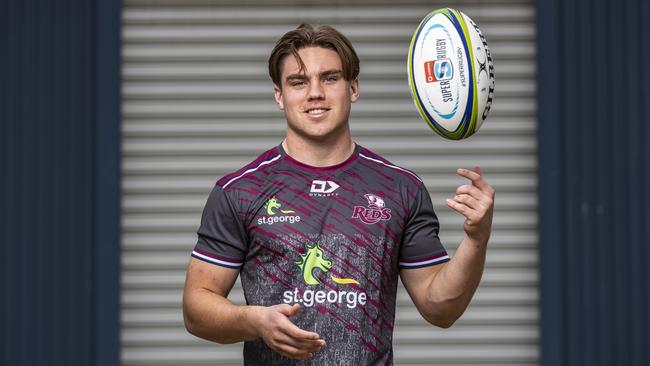
Rugby
Don't miss out on the headlines from Rugby. Followed categories will be added to My News.
There’s one huge difference between Mac Grealy’s footwork and the sparkling steps of Kalyn Ponga and James O’Connor that he dreams of following.
The 18-year-old whiz will start his dazzling at the Reds rather than be the envy of every Queensland rugby fan as the young gun who got away.
There’ll be no muscling in from the Western Force to grab O’Connor because the Reds thought him too small at 17. Or rugby league better valuing Ponga’s dynamic potential at the same age.
Watch full or condensed replays of the 2020 Vodafone Super Rugby season with Kayo. New to Kayo? Get your free trial and start streaming instantly >
Out of every drama, there is a dream break and Grealy has unexpectedly had one land in his lap because classy utility Isaac Lucas made a baffling decision to jump ship for Japanese rugby.
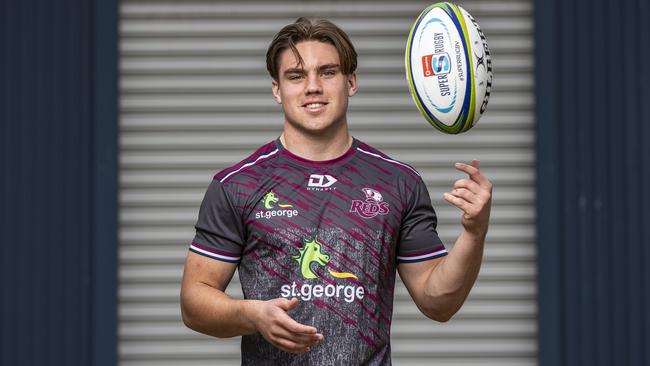
The compact fullback is still in “pinch-me” territory as a new addition to the Reds squad just seven months after finishing school at Toowoomba’s Downlands College.
He had the great benefit of former Wallaby Garrick Morgan being more than his First XV coach.
“I realise the value of Garrick pushing me harder than he did others because he wanted me to have a headstart on being professional about the game,” Grealy said.
“He pushed me to think more about the game, to lead and to have positive impacts on the team not just myself.”
Such good grounding is a throwback to the 1980s when a kid of precocious talent named Tim Horan, at the same school, was mentored by former England coach John Elders.
Morgan has got great mate Horan on board for coffee meetings and Zoom chats with Grealy to add some extra shades to his education.
“It’s been really good to get a taste of the next level at Reds training and I’ve been trying to pick up things from James, Bryce (Hegarty) and Jock (Campbell) about fullback play,” Grealy said.
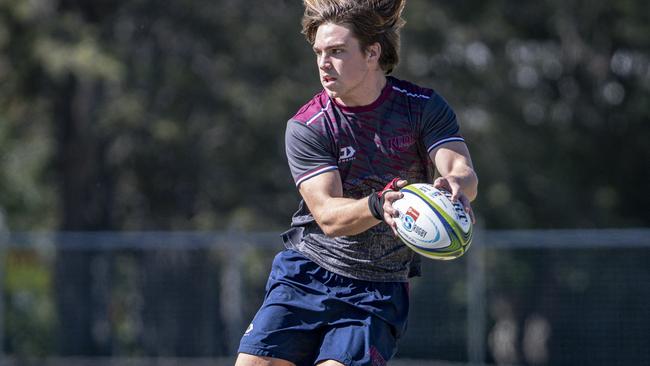
Grealy had no one footy poster on his bedroom wall in Toowoomba because he’s bigger on seeing traits he likes in all sorts of players.
“I suppose I pick and choose a bit for my game style and intertwine parts of what I see watching James O’Connor, Kalyn Ponga, Kurtley Beale and guys like that play,” Grealy said.
“The Ponga step … I wouldn’t be the first to try to emulate that.
“Having feedback from Tim Horan has been great and just having him stress the value of patience, being calm and enjoying the fun of playing with your mates.
“This chance is definitely a dream come true and I want to get as much out of training as I can.”
It would be reckless to prematurely list Grealy with those standout teenage backs that each decade throws up in Queensland from Paul McLean (1970s), Michael Lynagh, Jason Little and Horan (1980s), Elton Flatley and Ben Tune (1990s), Will Genia and Quade Cooper (2000s) and Jordan Petaia (2010s).
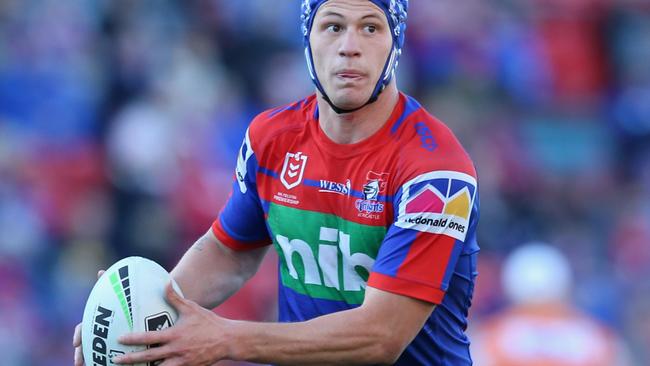
Morgan is convinced Grealy has the makings of a special player.
You have to listen when he saw Horan at close range grow from schoolboy to Wallaby great.
Grealy is still too raw to imagine him getting a run when the Reds open the new domestic competition at Suncorp Stadium against the NSW Waratahs on July 3-4.
Nobody is ruling out the first sighting of Mac Grealy before the competition is over.
Rugby hoping rule changes can launch new golden age
Super Rugby in Australia will next month be enlivened by “golden point” tie-breakers and a radical red card change when law variations are given the green light.
The upbeat changes will be in action for the appealing Queensland Reds-NSW Waratahs clash slated to launch the new domestic competition at Suncorp Stadium in the July 3-4 slot.
A longer wishlist of law variations and amendments were sent to World Rugby for scrutiny late on Thursday by Rugby Australia to lift the pace of play when the five-team competition kicks off.
The golden point idea to eradicate drawn games, of which there were six in 2019, is a straight copy from the NRL.
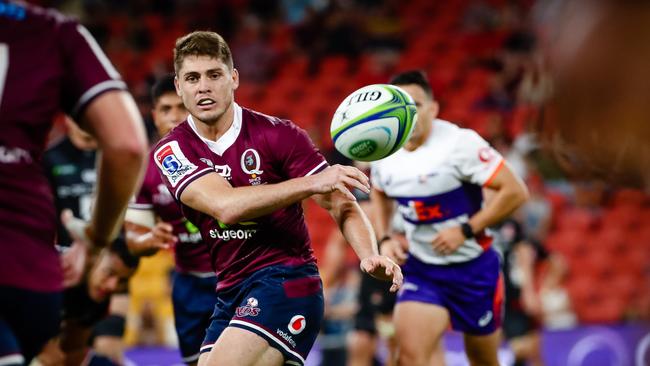
It is certain to win approval as is the red card tweak because they have already been ticked by World Rugby for use in New Zealand’s domestic competition starting on June 13.
“If we trial something, we want it to stay in the game long-term,” RA’s director of rugby Scott Johnson said.
“We have gone a bit further than the Kiwis by seeking a few additional variations to make the game more attractive while being aware of not going too far to be disadvantaged at Test time.”
Reds coach Brad Thorn will be delighted at the red card variation where the offending player can be replaced after 20 minutes off the field.
It will rectify the blight of uneven numbers ruining too many matches while still being costly to the sent-off player and his team.

In 2018, the Reds lost skipper Scott Higginbotham to a red card in the first 10 minutes against the Melbourne Rebels which deflated the opening weekend spectacle.
Super Rugby coaches, senior players like Matt Toomua and Michael Hooper, Johnson and referees bosses enjoyed a robust laws and tweaks debate on Zoom on Tuesday night.
A line dropout innovation pushed by the players garnered unanimous support.
If World Rugby endorse it, being held up over the tryline in attack or forcing the ball in defence over the line will both trigger a line dropout to open up more attacking opportunities.
Some tedious scrum resets will also be taken out of the game if it is approved that play-on is the only option, rather than a scrum reset, from a short-arm scrum penalty.
It requires no law variation but the Kiwi directive to more strictly police the rampant off-side rushes in defence that stifle room to attack is the best move of all.
Queensland Rugby Union chief executive David Hanham on Thursday explained why Ballymore was not a low-cost option to host Reds games, without crowds, in the new competition.
“Ballymore doesn’t have the LED perimeter signage to provide benefits back to our partners on TV, we have a commercial agreement with Suncorp Stadium and Stadiums Queensland has given a ‘cost-recovery only’ deal to codes playing there in this difficult climate,” Hanham said.
There is also the growing possibility that should small crowds be allowed back into stadiums in late July-August, Suncorp Stadium’s seating best caters to social distancing fans.


